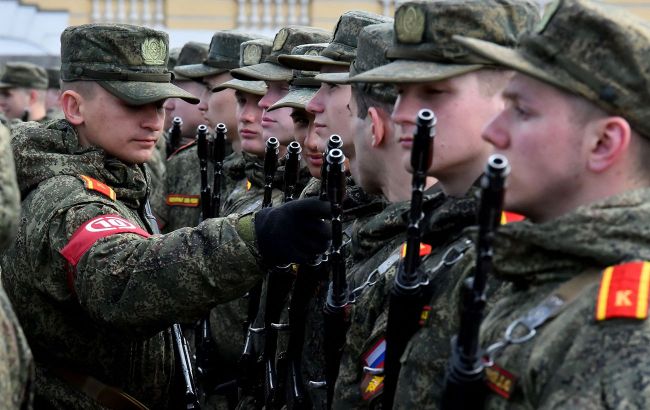Kremlin forms territorial defense units to support liberation of Kursk region - ISW
 Putin does not want to announce new mobilization in Russia (photo: Getty Images)
Putin does not want to announce new mobilization in Russia (photo: Getty Images)
Russia is establishing new volunteer territorial defense units in response to the Ukrainian Armed Forces' incursion into the Kursk region, according to the American Institute for the Study of War (ISW).
Analysts believe that the formation of these units indicates Russian dictator Vladimir Putin's reluctance to counter the invasion more seriously through mobilization, due to the risks of public discontent or a large-scale troop redeployment that could disrupt Russia's offensive operations in eastern Ukraine.
Tasks of a volunteer unit
On August 29, the Acting Governor of the Kursk region, Alexei Smirnov, announced the formation of the volunteer unit BARS-Kursk (BARS stands for Combat Reserve of the Russian Army). Smirnov stated that the primary mission of the unit would be to ensure security in the region during the invasion and to settle border towns in the area in the future.
Smirnov noted that the unit will cooperate with Russian military forces and the counter-terrorism operation headquarters overseeing current Russian activities in the Kursk region, and will also provide humanitarian support to residents of border towns.
According to the governor, volunteers will sign six-month contracts, undergo training, and receive any necessary weapons to fulfill their duties. Kursk region authorities announced recruitment for the unit on August 24.
BARS in Bryansk and Belgorod
Colonel Vitaly Sarantse, Ukrainian Kharkiv Group of Forces Spokesperson, reported that the Russian authorities are also forming BARS-Bryansk and BARS-Belgorod units to support the Northern Group of Russian troops. Saranchev estimated that the three units will collectively comprise 4,921 volunteers.
"The formation of these new BARS (Russian Army Combat Reserve) volunteer detachments is consistent with the Kremlin's apparent strategy to avoid re-deploying experienced or combat-effective units engaged in fighting in the Pokrovsk or Toretsk directions to the Kursk region due to concerns about slowing the tempo of Russian offensive operations in these higher priority directions," analysts from the Institute for the Study of War (ISW) noted.
Volunteers are a significant resource
The report also suggests that the Kremlin is heavily relying on conscripts and irregular forces redeployed from less priority areas in Ukraine to defend against the Ukrainian Armed Forces' incursion into the Kursk region.
The ISW noted that Putin expressed a desire to continue relying on Russian volunteers (dobrobat) to counter the Ukrainian invasion during a meeting on August 12 with Russian military, security, and civilian officials. The dictator hinted at the willingness to sign contracts for military service among prospective volunteers.
The report highlights that Putin has consistently relied on volunteer and irregular formations to alleviate the shortage of manpower during the war. He has also avoided declaring general mobilization or another round of partial mobilization, which would be highly unpopular among the Russian public.
Unpopular mobilization
Analysts at the Institute for the Study of War suggest that Putin is almost certainly extremely reluctant to declare a general mobilization.
"Putin almost certainly remains extremely averse to declaring general mobilization and will likely continue to rely on irregular formations to address the ongoing Ukrainian incursion into the Kursk region until Russian offensive operations culminate in eastern Ukraine - at which point Putin may consider re-deploying more combat effective Russian forces from these directions to push Ukrainian units back across the border," the ISW report states.
Situation in the Kursk region
For the third week, the Ukrainian Armed Forces have been conducting operations in the Kursk region. The aim of controlling these settlements is to create a buffer zone around the Ukrainian-Russian border in the Sumy region and to draw the aggressor's troops away from other front lines.
Currently, Ukrainian forces control 100 settlements in the region, and approximately 600 Russian soldiers have been taken prisoner.
In response to the Ukrainian advance in the Kursk region, the Kremlin has redeployed about 30,000 troops from other frontlines.
American edition The Hill is convinced that the Ukrainian operation has significantly undermined the morale of the Russian army and altered the dynamics of the war in Ukraine.

